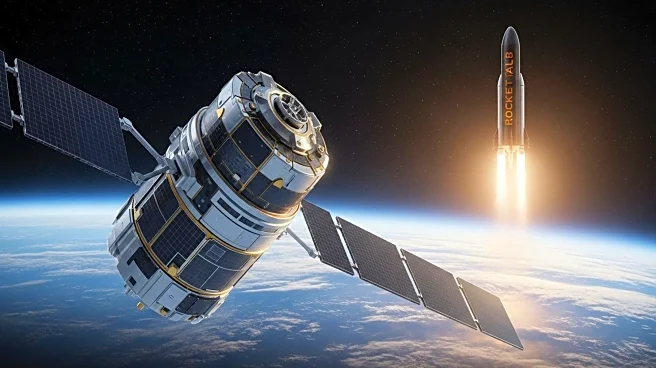What is the story about?
What's Happening?
Synspective, a Japanese company specializing in radar imaging satellites, has signed a deal with Rocket Lab for 10 additional Electron launches. This agreement, announced at the International Astronautical Congress, will see each launch carrying a single StriX radar imaging satellite from Rocket Lab's Launch Complex 1 in New Zealand. Synspective aims to expand its satellite constellation to 30 by 2030, driven by strong demand for radar imagery from the Japanese government and commercial clients. The company has also diversified its launch providers, signing contracts with SpaceX and Exolaunch for future satellite deployments.
Why It's Important?
The partnership between Synspective and Rocket Lab underscores the growing demand for satellite imaging services, particularly in the field of synthetic aperture radar (SAR) technology. This expansion is crucial for meeting the needs of government and commercial clients who rely on high-resolution radar imagery for various applications, including disaster management and infrastructure monitoring. The deal highlights the competitive landscape of the satellite launch industry, with companies like Rocket Lab and SpaceX playing pivotal roles in enabling the deployment of satellite constellations.
What's Next?
As Synspective continues to build its satellite constellation, the company will focus on meeting its goal of deploying 30 satellites by 2030. The diversification of launch providers ensures flexibility and reliability in achieving this target. The increased availability of radar imagery could lead to new applications and services, driving further innovation in the satellite imaging sector. Additionally, the collaboration between satellite operators and launch providers may foster advancements in launch technology and cost efficiency.
Beyond the Headlines
The expansion of satellite constellations raises considerations about space traffic management and the sustainability of low Earth orbit. As more satellites are launched, the risk of collisions and space debris increases, necessitating improved regulatory frameworks and international cooperation. The growing reliance on satellite imagery also highlights the importance of data privacy and security, as sensitive information is collected and transmitted from space.
















